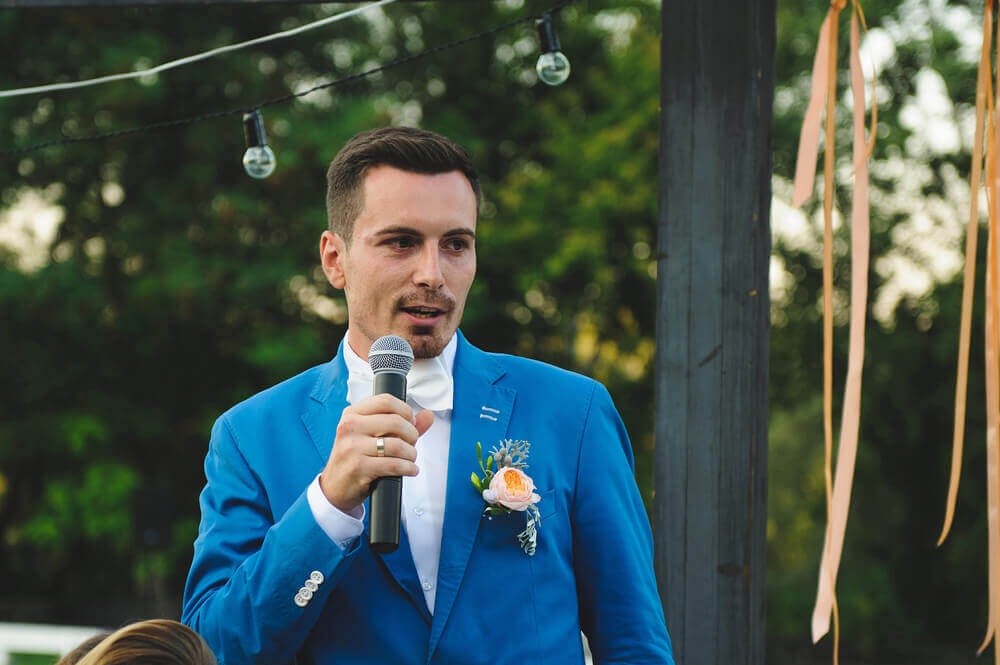Wedding Speeches in Perfect Order
When a wedding reception is being planned, one of the first thoughts families will have is who is to make the wedding speeches. This is not something people do very often and if you haven’t been to many weddings the process of making speeches may be a bit of a mystery. It might be assumed that in the modern world we live in it doesn’t matter who makes speeches or which order they come in.

A wedding is usually a traditional ceremony and long-established standards and protocols are usually the starting point. If you know how the speeches are normally presented, you can then vary the theme to suit your own taste. There are four key speeches that are presented in specific order. These are:
- The father of the bride
- The father of the groom
- The groom
- The best man
The father of the bride is usually first to make a speech. The core elements of his speech are
- Thanks to friends and family for attending the reception
- Thanks to staff of the wedding venue
- Thanks to the person or church who officiated at the wedding ceremony
- Welcome to the groom’s family
- Talk about his daughter, the bride
- Toast the bride and groom
The father of the groom is second to speak. His task is to thank any people or organizations he has been working with in organizing the wedding and to welcome the bride’s family. He will then reflect on his son with appropriate anecdotes.
The groom should also thank any organizations or individuals he has worked with during wedding preparations. One of his main tasks will be to focus on the bridesmaids and talk about their contribution to the events. He should also talk about his new wife, with the obligatory reference to ‘My wife and I’. The groom will propose a toast to the bridesmaids.
The best man is last to make a formal speech. He might also comment on the bridesmaids and will read any messages or telegrams sent by those who cannot attend. The perceived role of the best man is to embarrass the groom. Be aware that the guests will be mixed in age, background and outlook. There is a difference between playful embarrassment and offensive humiliation. It is important that the best man knows the difference
A BIT OF HUMOUR
Humour can play a large part in speeches. It is better to leave something out than to add forced jokes or humour that sounds unnatural. Humorous anecdotes always sound much better than jokes downloaded from the Internet. The humorous content must always be tempered by the mixed company.
OPEN SPEECHES
An open microphone session can be included to enable friends and family to comment on the couple and the wedding. Some people unfortunately do not know when to stop talking and like to hear themselves talk. They can dominate the proceedings and take away from the preceding speeches. You should consider the balance of benefits very carefully. Only let others talk if you have enough time to spare.
BEFORE OR AFTER MEAL
A major consideration is whether the speeches come before or after the meal. Traditionally the speeches were delivered after the meal; however there has been a recent trend towards having the speeches before the meal. This takes pressure off the wedding party and means they can enjoy what may be the most expensive meal they ever buy.
From the information above you can see that, while there is a formal structure in wedding speeches, there is still scope for flexibility. Don’t lose sight of the fact that this is a celebration to be enjoyed by all and it will be a happy event for all who participate.
